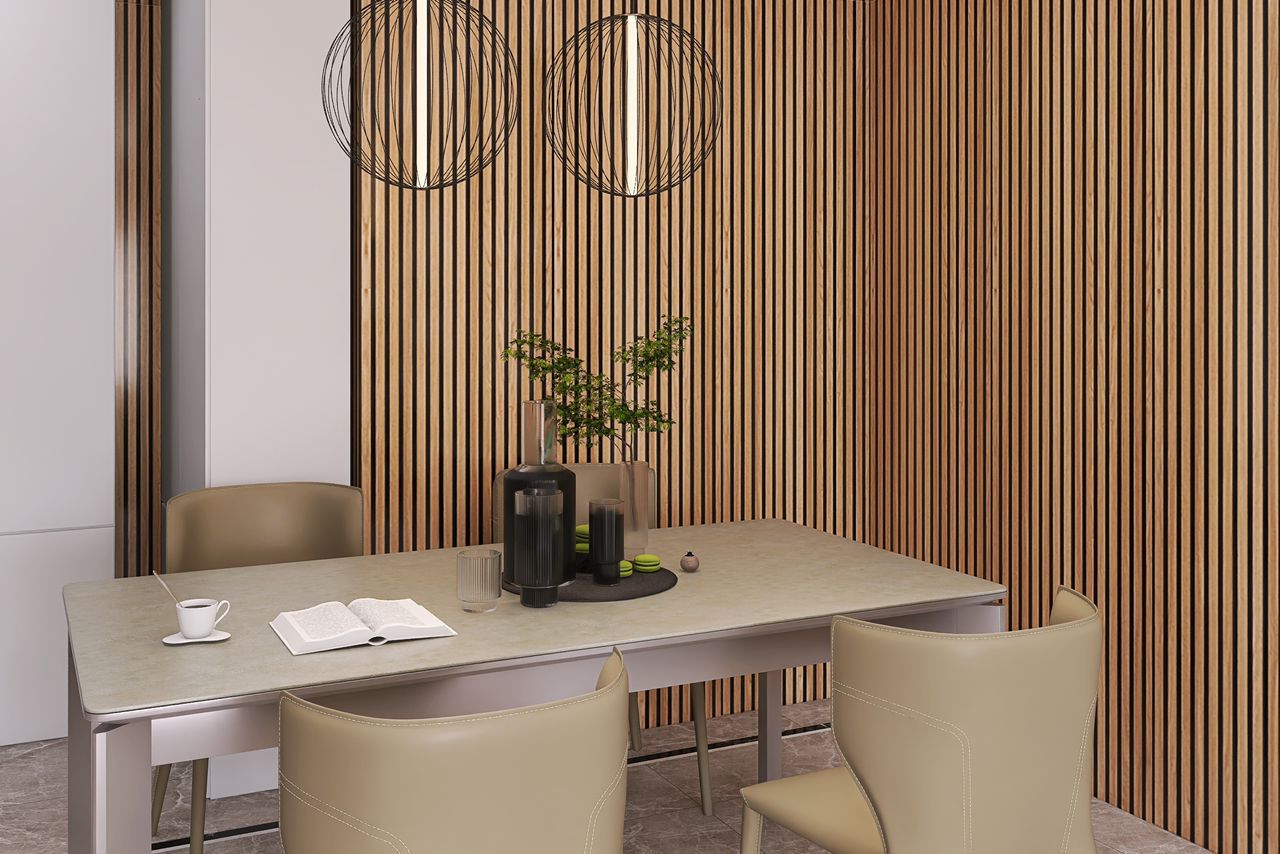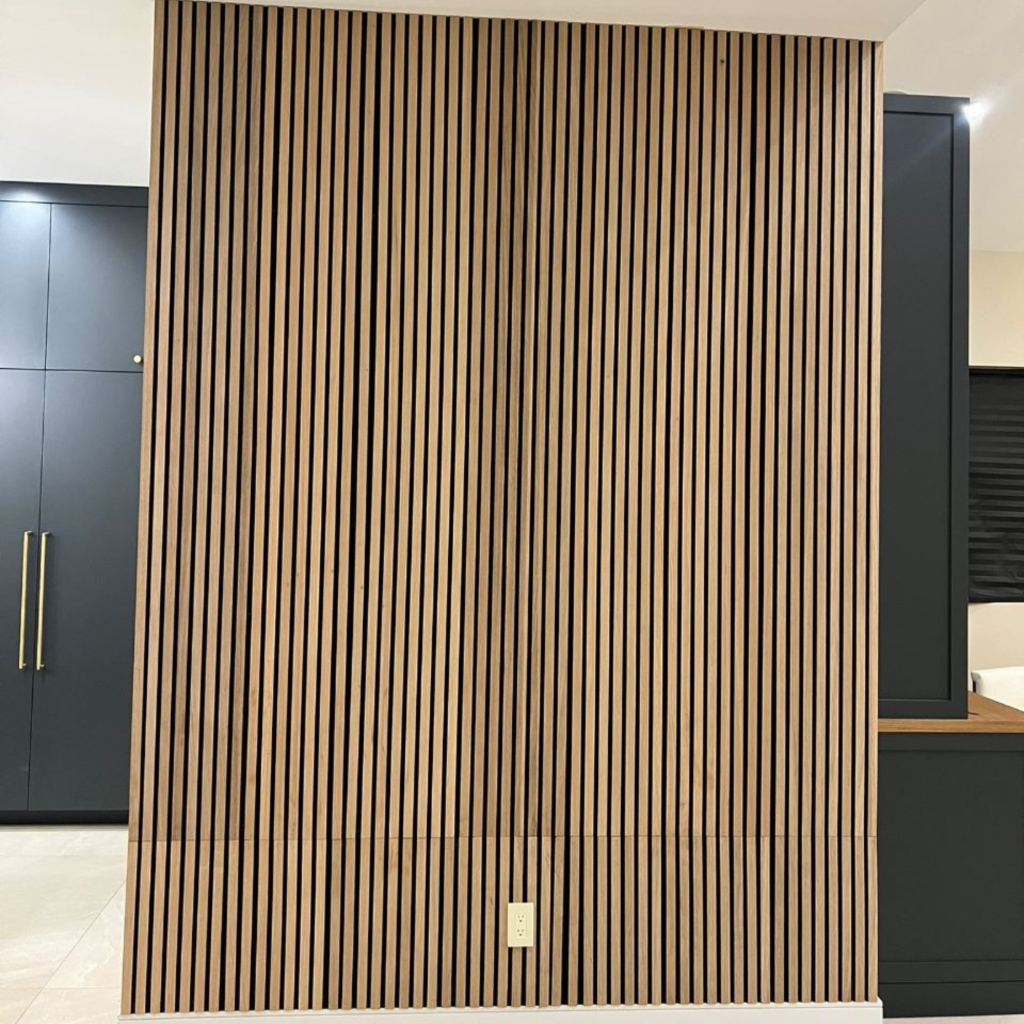Transform Your Home with Stylish Wall Paneling

Transform Your Home with Stylish Wall Paneling
A classic method of improving your interior design is wall paneling, which skillfully combines style and functionality. Transform your living space with unique designs using
for added charm. Wall paneling may quickly change your room while bringing personality and coziness, regardless of your preference for a modern, rustic, or classic look. This tutorial will go over how to select, install, and care for wall paneling to make it a long-lasting feature in your house.
Why Wall Paneling is a Must-Have
Wall paneling is a useful and adaptable way to improve interior spaces; it’s not just a fad. Here are some reasons why designers and homeowners favor it:
- Aesthetic Appeal: Wall paneling gives plain walls visual interest, depth, and texture.
Durability: Panels are perfect for high-traffic areas since they shield walls from harm.
Insulation: Certain paneling materials aid in noise reduction and temperature regulation. - Customization Options: Wall paneling complements any decor style thanks to its wide range of materials, colors, and patterns.
Choosing the Right Wall Paneling
Selecting the perfect paneling for your space requires considering materials, styles, and functionality.
Popular Wall Paneling Materials
Because each material has its advantages and aesthetics, you can choose the one that best suits your house.
Solid Wood: Provides classic style and can be painted or stained to add a personal touch.
Medium-density fiberboard, or MDF, is smooth and reasonably priced, making it ideal for painted finishes or elaborate designs.
PVC panels are perfect for kitchens and bathrooms since they are easy to clean and resistant to moisture.
Bamboo panels are lightweight, eco-friendly, and give off a textured, natural look.
Common Paneling Styles
The entire atmosphere of a room is greatly influenced by the paneling style you choose.
Shiplap is a popular rustic flooring option that has horizontal planks that give it a farmhouse feel.
- Wainscoting: Covers the lower part of the wall with flat or raised panels to add beauty.
Geometric patterns provide a dramatic and contemporary look that is perfect for statement walls.
The small vertical planks of beadboard provide traditional or cottage-style homes with a charming touch.
Factors to Consider
Before choosing wall paneling, keep these factors in mind:
- Room Functionality: Kitchens and bathrooms are the greatest places for moisture-resistant materials.
- Lighting: Darkish tones create comfort, while lighter panels can brighten dark areas.
Budget: While genuine wood and bamboo may cost more, materials like MDF are more affordable.
Installing Wall Paneling: Step-by-Step Guide
Wall paneling installation can be a DIY project with the right tools and preparation.
Preparation
- Clean the Wall: Make sure there is no dirt, oil, or flaws on the surface.
- Measure the Space: Precise measurements guarantee a smooth fit and avoid material waste.
- Select the Correct Tools: Assemble necessary supplies like a level, nails, glue, and a saw.
Installation
- Cut Panels to Size: Take measurements and cut each panel to fit the size of your wall.
- Apply Adhesive: To firmly fasten the panels to the wall, use strong adhesive.
- Secure with Nails: To increase stability, reinforce the panels with nails.
- Fill Gaps: For a finished appearance, fill in the spaces between panels with caulk or filler.
Finishing Touches
- Paint or Stain: Customize the color to suit your decor.
- Trim and Molding: Add decorative edges for a refined appearance.
Maintenance Tips for Long-Lasting Panels
Your wall paneling will stay gorgeous for many years if you take proper care of it. Whether modern or traditional,
can complement any decor style.
- Dust Frequently: To avoid dust accumulation, use a gentle cloth.
Avoid Harsh Chemicals: Use a moist towel and a light detergent to clean the panels.
Check for Damage: To keep a perfect appearance, fix chips or scratches as soon as possible.
Enhancing Spaces with Wall Paneling
Wall paneling isn’t limited to walls—it’s a creative tool for various applications around your home.
- Ceiling Panels: Add depth and a touch of sophistication to ceilings.
- Accent Walls: Use bold colors or patterns to create focal points in living spaces.
- Built-In Features: Incorporate paneling into shelving, headboards, or cabinetry.
Frequently Asked Questions
Q: Is wall paneling suitable for all rooms?
A: Yes, but choosing the right material is key. Moisture-resistant panels are ideal for bathrooms, while solid wood works well in living areas.
Q: Can wall paneling be installed over existing walls?
A: Absolutely! Paneling can cover drywall, concrete, or plaster, provided the surface is clean and level.
Q: What’s the cost of wall paneling?
A: Costs vary based on materials and room size. MDF and PVC are budget-friendly, while hardwood options are more expensive.
Transform Your Home Today
Wall paneling is a great technique to improve the interior decor of your house. It provides equal parts beauty and practicality, from concealing flaws to imparting warmth. Many DIY enthusiasts rave about the simplicity of installing
. To create a room that expresses your individuality and improves your quality of life, pick the ideal material, design, and finish.



